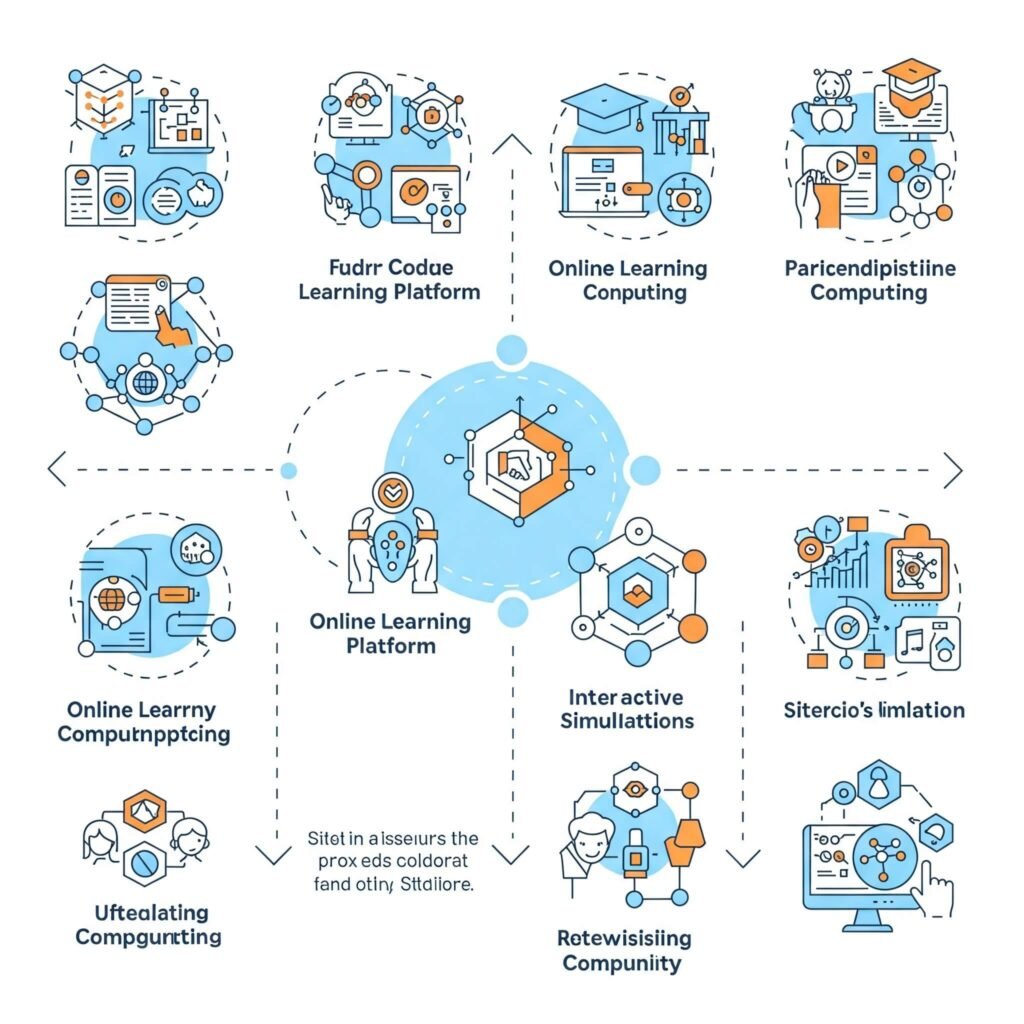Quantum Computing Explained: Your Guide to the Future
Quantum computing explained in plain English unlocks one of the most transformative technologies today. Unlike traditional computers that use binary bits (0s or 1s), quantum computers harness quantum mechanics to tackle problems at incredible speeds. Whether you’re a tech enthusiast or new to the topic, this beginner-friendly guide breaks down quantum computing with clear insights, practical examples, and actionable steps to get started.
What Is a Quantum Computer?
A quantum computer uses principles of quantum mechanics to process information differently from classical computers. While classical bits are either 0 or 1, quantum computers use qubits, which can represent multiple states at once due to superposition and entanglement.
Think of a qubit like a spinning coin—it’s both heads and tails until measured. This ability to handle multiple states allows quantum computers to perform complex calculations far beyond classical systems for specific tasks.
Core Quantum Concepts:
- Superposition: Qubits exist in multiple states simultaneously, enabling parallel processing.
- Entanglement: Linked qubits influence each other instantly, even across distances.
- Quantum Interference: Algorithms amplify correct solutions while canceling incorrect ones.

How Quantum Computers Operate
Quantum computing explained at its core involves manipulating qubits with quantum gates, similar to logic gates in classical computing but based on quantum principles. These gates alter qubit states to perform calculations.
Here’s how it works:
- Initialization: Qubits start in a superposition state.
- Computation: Quantum gates apply algorithms tailored to specific problems.
- Measurement: Qubits collapse to a definite state (0 or 1), yielding results.
For example, Google’s Sycamore quantum computer achieved quantum supremacy in 2019, solving a problem in 200 seconds that would take a supercomputer 10,000 years. This milestone highlighted quantum technology’s potential.
Outbound Link: Google’s Quantum Supremacy Paper for further reading.
Why Quantum Technology Is a Big Deal
Quantum computing has the power to transform industries by solving problems classical computers struggle with. Its ability to process vast datasets and simulate complex systems makes it invaluable for specific applications.
Real-World Uses:
- Drug Development: Quantum computers can model molecular interactions, speeding up drug discovery. Companies like IBM are exploring this.
- Cybersecurity: Quantum algorithms could crack traditional encryption, driving quantum-safe solutions.
- Climate Science: Quantum models can improve predictions for climate change mitigation.
- Finance: Banks like JPMorgan Chase use quantum algorithms for portfolio optimization.

Hurdles in Quantum Development
Despite its potential, quantum computing faces challenges that keep it from widespread use. Understanding these barriers provides context for its current state.
Main Obstacles:
- Error Rates: Qubits are sensitive to noise (e.g., temperature), causing computational errors.
- Scalability: Building large-scale quantum systems, like IBM’s 127-qubit Eagle, remains difficult.
- Cost: Quantum computers are expensive, limiting access to major organizations.
Progress is steady, with companies like Google, IBM, and Rigetti pushing for solutions. Expect breakthroughs in the coming years.
Outbound Link: IBM’s Quantum Roadmap for updates on advancements.
Getting Started with Quantum Technology
You don’t need a PhD to explore quantum computing! Whether you’re a student or professional, here are practical ways to dive in:
- Study the Basics: Take free courses on edX or Qiskit, IBM’s quantum framework.
- Try Tools: Experiment with Qiskit or Microsoft’s Quantum Development Kit to simulate quantum circuits.
- Join Communities: Connect with experts on Quantum Computing Stack Exchange.
- Stay Informed: Follow news from Google, IBM, and D-Wave for the latest updates.

The Road Ahead for Quantum Innovation
Quantum computing explained in terms of its future is thrilling. By 2030, experts predict quantum computers could become commercially viable, impacting healthcare, finance, and more. McKinsey projects quantum technology could create $1 trillion in value by 2035.
However, challenges like cybersecurity risks loom. Quantum computers could disrupt encryption, prompting investment in quantum-safe solutions.
Outbound Link: McKinsey’s Quantum Report for data-driven insights.
Conclusion: Why Quantum Computing Matters to You
Quantum computing explained in plain English shows it’s more than sci-fi—it’s shaping tomorrow. From faster drug discovery to secure data, quantum technology offers solutions to big challenges. Start exploring today with a course, tool, or community discussion.
Call to Action: Ready to learn more? Check out a quantum computing course or share this guide to spark curiosity!

































